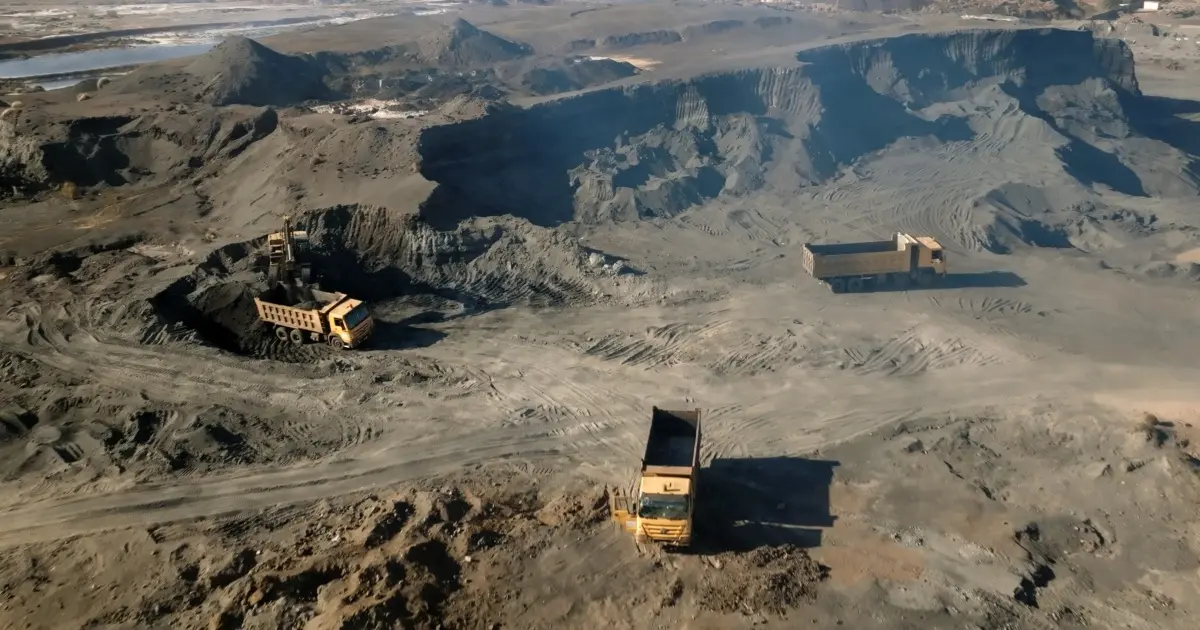Across Zambia’s mineral-rich Copperbelt region, communities are rising against what they describe as decades of unchecked environmental destruction caused by Chinese-linked mining companies. Once celebrated as a symbol of foreign investment and economic growth, many of these mining projects are now at the center of lawsuits filed by local villagers who claim their rivers, farmlands, and health have been sacrificed in the name of profit.
- The Background of Zambia’s Mining Sector
- The Communities’ Legal Battle
- Human Stories Behind the Lawsuits
- China’s Role in Zambia’s Mining Industry
- Government Response and Political Tensions
- Environmental and Health Consequences
- Global Repercussions of Zambia’s Lawsuits
- Expert Opinions and Analysis
- The Path Forward
- FAQs
- Why are Zambian communities suing Chinese-linked mining companies?
- What role does China play in Zambia’s mining industry?
- How has the Zambian government responded to these lawsuits?
- What are the health impacts of mining pollution on local communities?
- Could these lawsuits influence mining practices in other African countries?
- What does this mean for global copper supply?
- Conclusion
The legal actions represent not only a fight for justice but also a larger conversation about the balance between economic development and environmental protection in Africa’s fast-growing mining industry.
The lawsuits shine a spotlight on the mounting tension between local communities and foreign corporations, particularly those backed by China, which has become Zambia’s largest trading partner and investor. With accusations ranging from toxic pollution to land degradation, villagers are turning to the courts to demand accountability, sparking a debate about corporate responsibility, government oversight, and the future of sustainable mining in the region.
The Background of Zambia’s Mining Sector
Zambia is Africa’s second-largest producer of copper, and the red metal has long been the lifeblood of its economy. The Copperbelt Province, stretching along the country’s northern border, accounts for the majority of this production. For decades, mining has brought in crucial export revenue and jobs, making Zambia highly dependent on global commodity markets.
Following privatization in the 1990s, foreign investors, particularly from China, rushed to acquire stakes in Zambian mines. Today, Chinese firms own or control a significant share of Zambia’s copper production, with Beijing viewing the resource as vital for its industrial and technological ambitions. According to government data, China now accounts for more than 40% of Zambia’s copper exports, underscoring the depth of the relationship.
Yet alongside this economic partnership lies a trail of grievances. Communities near Chinese-run mines allege that unregulated operations have poisoned rivers with heavy metals, destroyed agricultural land, and displaced entire villages. These claims, once dismissed as isolated complaints, are now fueling a wave of collective legal action that could set a precedent for environmental justice across Africa.
The Communities’ Legal Battle
In recent years, residents of mining towns such as Chingola, Mufulira, and Kitwe have filed lawsuits against several Chinese-linked mining companies. One of the most high-profile cases involves villagers living along the Kafue River, who accuse a Chinese-run copper mine of discharging acid and toxic waste directly into the water supply. Families claim the pollution has caused livestock deaths, destroyed crops, and led to a rise in unexplained illnesses ranging from skin rashes to respiratory problems.
Lawyers representing the communities argue that mining companies have systematically violated both Zambian environmental laws and international standards. They are calling for compensation, environmental restoration, and stricter oversight from the government. According to community leaders, this is not merely about financial settlements but about protecting future generations from irreversible damage.
Human Stories Behind the Lawsuits
Beyond the court filings and legal jargon are the lived experiences of ordinary Zambians who feel abandoned in the wake of corporate expansion. Farmers like Joseph Mwansa recall how fertile land that once sustained their families has been reduced to barren soil due to chemical runoff. Mothers like Grace Nsofwa describe carrying buckets of water from rivers that turned green and foul-smelling after mining operations intensified.
For many families, the environmental devastation is not just an inconvenience but a matter of survival. With agriculture and fishing as primary livelihoods, polluted land and water cut directly into food security and income. Children are forced to travel long distances for clean drinking water, and reports of unexplained health conditions are becoming more frequent. These personal narratives transform the lawsuits from abstract legal cases into stories of resilience, loss, and the quest for dignity.
China’s Role in Zambia’s Mining Industry
The central role of Chinese investment cannot be ignored. Over the past two decades, China has poured billions into Zambia’s mining sector, often securing favorable deals that critics say prioritize corporate gain over local well-being. Chinese companies, both state-owned and private, operate some of the largest mines in Zambia, including those producing copper, cobalt, and other strategic minerals essential for China’s manufacturing and clean energy sectors.
While Chinese officials argue that their investments bring jobs, infrastructure, and economic growth, local communities increasingly see the costs outweighing the benefits. According to Transparency International Zambia, weak regulatory enforcement has allowed foreign firms to operate with limited accountability. Environmental assessments, when conducted, are often superficial, and penalties for violations are rarely enforced.
This has led to accusations that Zambia has become overly dependent on China, compromising its ability to demand stricter standards. Critics argue that the country risks trading away its environmental future for short-term economic gains, a concern echoed by international environmental organizations.
Government Response and Political Tensions
The Zambian government faces a delicate balancing act. On one hand, it relies heavily on mining revenues to fund public services and repay mounting national debt, much of it owed to Chinese lenders. On the other hand, it must respond to growing public outrage and demands for accountability.
Officials have pledged to strengthen environmental laws and improve monitoring, but critics say enforcement remains weak. In some cases, political leaders have appeared reluctant to challenge Chinese firms for fear of jeopardizing investment flows. Activists argue this reluctance has left communities with little choice but to turn to the courts.
The lawsuits also intersect with Zambia’s broader political dynamics. With elections on the horizon, opposition parties are seizing on the issue to criticize the government’s handling of foreign investment and environmental regulation. The outcome of these legal battles could therefore shape not only corporate practices but also the country’s political future.
Environmental and Health Consequences
The environmental devastation alleged in the lawsuits has far-reaching implications. Studies by local and international NGOs have documented high levels of heavy metals such as lead and copper in soil and water near mining sites. These pollutants can persist for decades, threatening ecosystems and human health alike.
For communities dependent on agriculture, soil contamination translates directly into reduced yields and food insecurity. For families relying on rivers for drinking water, toxic discharges mean higher risks of gastrointestinal diseases, kidney damage, and long-term health complications. Livestock deaths further erode rural livelihoods, creating cycles of poverty that are difficult to break.
Children are particularly vulnerable. Medical workers in affected regions report rising cases of stunted growth, learning difficulties, and chronic illnesses linked to exposure to mining-related toxins. Experts warn that without urgent intervention, an entire generation could face lifelong health consequences from today’s environmental negligence.
Global Repercussions of Zambia’s Lawsuits
The lawsuits in Zambia carry implications far beyond its borders. Across Africa, Chinese companies are heavily invested in mining projects, from cobalt in the Democratic Republic of Congo to bauxite in Guinea. If Zambian communities succeed in holding these companies accountable, it could embolden communities in other countries to pursue similar legal actions.
The cases also feed into broader global debates about the responsibilities of multinational corporations operating in the Global South. Should foreign investors be held to the same environmental and labor standards abroad as they are at home? How can developing nations balance the need for investment with the rights of their citizens to live in safe and healthy environments?
These questions are gaining urgency as demand for minerals critical to the clean energy transition—such as copper and cobalt—continues to surge. The Zambian lawsuits could therefore set a precedent for how the global race for resources is governed in an era of climate change and sustainability concerns.
Expert Opinions and Analysis
Environmental law experts note that while legal action is a powerful tool, success will depend on the independence of Zambia’s judiciary and the ability of communities to sustain lengthy court battles. International human rights organizations, including Amnesty International and Human Rights Watch, have expressed support for the communities, calling on the Zambian government to enforce stricter environmental safeguards.
Dr. Chanda Chileshe, a Zambian environmental scientist, emphasizes that the issue is not simply anti-Chinese sentiment but a systemic failure to enforce regulations. “The laws are there,” she explains, “but enforcement is weak, and companies—whether Chinese or otherwise—exploit these gaps. Communities are bearing the brunt of this failure.”
Others argue that the lawsuits highlight the need for stronger international frameworks governing corporate conduct abroad. With supply chains becoming increasingly global, ensuring accountability requires cooperation between host governments, foreign investors, and international bodies.
The Path Forward
The lawsuits represent both a challenge and an opportunity for Zambia. If successful, they could force mining companies to adopt cleaner practices, compensate affected communities, and rehabilitate damaged environments. They could also strengthen the role of civil society in holding corporations accountable.
However, without structural reforms, victories in court may not be enough. Experts argue that Zambia must invest in stronger regulatory institutions, independent monitoring, and transparent reporting mechanisms. Greater community involvement in decision-making processes could also ensure that local voices are heard before mining projects are approved.
For China, the lawsuits present a reputational risk. As it positions itself as a global leader in green energy and sustainable development, allegations of environmental destruction abroad could undermine its credibility. Addressing these concerns proactively may therefore be in Beijing’s long-term interest.
FAQs
Why are Zambian communities suing Chinese-linked mining companies?
Communities allege that mining companies have caused widespread environmental damage, including pollution of rivers, destruction of farmland, and health problems. They are suing for compensation, environmental restoration, and greater accountability.
What role does China play in Zambia’s mining industry?
China is Zambia’s largest trading partner and investor, with Chinese firms controlling significant portions of copper production. These companies are central to Zambia’s mining sector but face criticism for weak environmental practices.
How has the Zambian government responded to these lawsuits?
The government has promised stronger environmental regulations, but critics say enforcement remains weak. Communities argue that officials often prioritize foreign investment over local well-being, leaving courts as the primary avenue for justice.
What are the health impacts of mining pollution on local communities?
Pollution from mining has been linked to respiratory issues, gastrointestinal diseases, stunted growth in children, and livestock deaths. Contaminated soil and water also undermine agriculture and food security.
Could these lawsuits influence mining practices in other African countries?
Yes, successful lawsuits in Zambia could inspire communities in other African nations to hold mining companies accountable. This could reshape how multinational corporations operate across the continent.
What does this mean for global copper supply?
As Zambia is a major copper producer, legal challenges and stricter regulations could affect production levels and investment flows, potentially influencing global copper markets. However, advocates argue that sustainable practices will ensure long-term stability.
Conclusion
The lawsuits filed by Zambian communities against Chinese-linked mining companies mark a pivotal moment in the struggle for environmental justice in Africa. They reflect not only the immediate pain of poisoned rivers and ruined farmlands but also a broader demand for accountability in a global economy that too often overlooks the rights of vulnerable communities.
Whether the courts deliver justice remains to be seen, but the message is already clear: development cannot come at the cost of human dignity and ecological survival. Zambia’s fight resonates far beyond its borders, serving as a reminder that sustainable growth requires not just minerals and markets but also respect for people and the planet.















